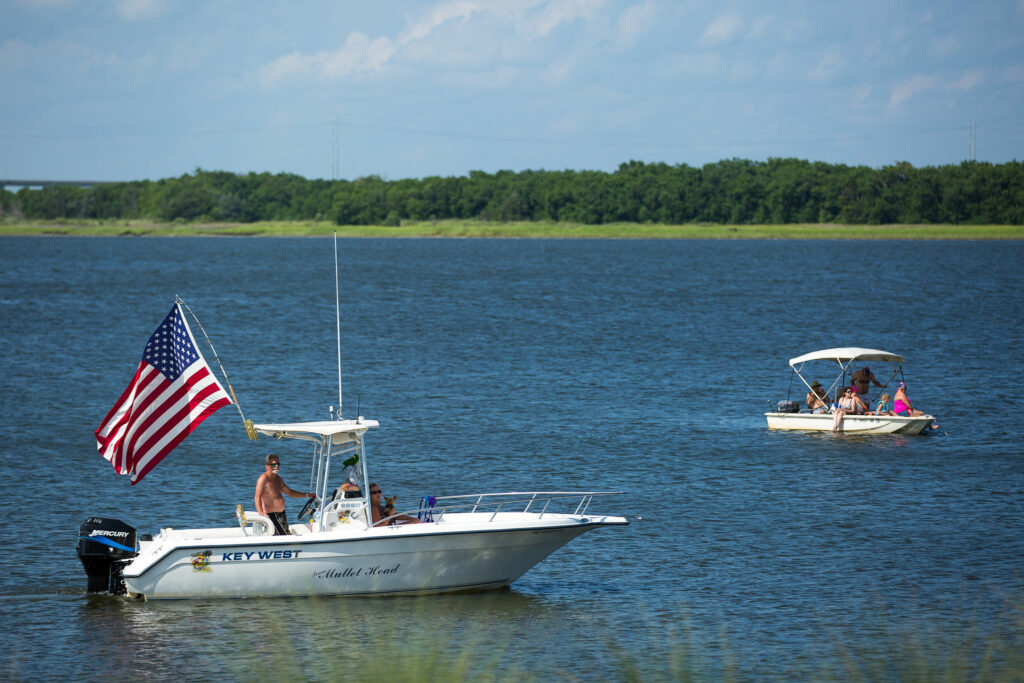A Guide to Boating Licenses in South Carolina

Boating is a popular recreational activity in South Carolina, and really anywhere near water or the coast. However, boating can also be dangerous if not approached with the necessary knowledge and skills.
Despite this universal fact, South Carolina only requires a boaters license for those under 16 years of age, so you can feel free to skip the boating license thing and simply get out on the water.
Who Needs a Boater Education?
In South Carolina, boaters under 16 years of age are required by law to pass an approved boater education course before operating, without supervision, a personal watercraft (jet ski) or a boat powered by 15 hp motor or more.
Even with the lenient laws, boater education is crucial as it teaches the fundamentals of safe and responsible boating, and can help you avoid hazards on the water — before you even arrive at the boat ramp.
It’s important to know the rules of the road and the basics for operating the vessel, especially safety and emergency procedures. As a further incentive, completing official boater education courses can also make you eligible for insurance discounts.
South Carolina Boater Education Course
South Carolina offers two options for taking the boater education course: instructor-led classes and online self-study. Instructor-led classes are free and generally last six hours. Online self-study courses are available for a one-time fee of $39.95.
The U.S. Coast Guard Auxiliary and the United States Power Squadrons also provide classes throughout the state for a minimal fee.
Instructor-Led Classes
Instructor-led classes are held throughout the state, and schedules can be found on the South Carolina Department of Natural Resources website. The classes cover topics such as boating terminology, safe boating practices, and South Carolina boating laws. The classes generally last six hours and end with a test to pass the course.
However, hiring a private instructor may be a better approach for some boaters.
Private instructors can provide individualized instruction tailored to a boater’s specific needs, such as docking techniques or navigating difficult waters. Experienced friends or family members who are knowledgeable about safe and responsible boating practices can also provide guidance.
Online Self-Study Course
The online self-study course is a convenient option for boaters who prefer to complete the course at their own pace. The course includes interactive graphics and covers the same topics as the instructor-led classes. Once the course is completed, a State of South Carolina boating safety certificate is mailed to the boater.
National Association of Safe Boating Law Administrators
The National Association of Safe Boating Law Administrators is responsible for approving internet-based boating safety courses (what a tongue-twister!). The South Carolina Department of Natural Resources will accept any course approved by the NASBLA. The course provider is responsible for providing the student with a boating certificate upon successful completion of the course.
SC Boater Education Handbook
The SC Boater Education Handbook provides a wealth of information for boaters, including the three major responsibilities of vessel operators to prevent collisions: practicing good seamanship, keeping a proper lookout, and maintaining a safe speed.
The handbook is a valuable resource for all boaters and can be used in conjunction with instructor-led classes, online self-study courses, private instruction, or experienced friends or family members to develop knowledge and skills for safe and responsible boating practices.
Conclusion
Boater education is a critical component of safe and responsible boating in South Carolina. While the state may have lenient and/or nonexistent laws about boating licenses, it’s important to take the initiative to educate yourself on safe boating practices.
Whether you choose to take an instructor-led class, online self-study course, or hire a private instructor, learning more about boats and the South Carolina rules and regulations of their operation can help reduce the risk of accidents and ensure that you and your fellow boaters have a safe and enjoyable experience on the water.